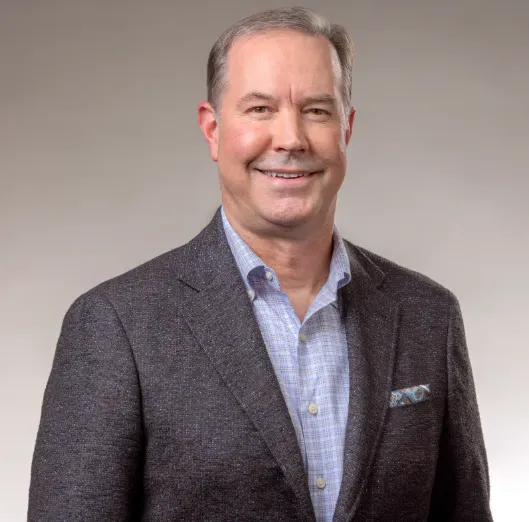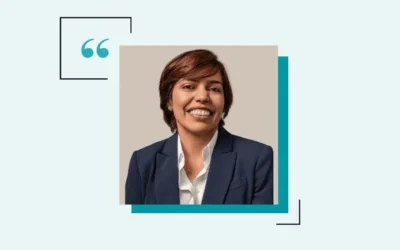When Bruce Schuman joined Universal Technical Institute as CFO in March of this year, he stepped into a company in expansion mode.
UTI is scaling beyond its legacy automotive and diesel technician programs into high-demand fields like health care, energy and skilled trades. With multiple new campuses and programs already announced this year, the publicly traded $1.7 billion education company is aiming to meet widespread surging labor demands while modernizing its business and financial operations.
As more Americans question the cost and value of a four-year degree, many smaller, traditional colleges struggle to remain open. UTI’s shorter, career-aligned programs are gaining traction, and Schuman says that cultural shift creates both momentum and responsibility for his team to execute with discipline.
In a recent interview, Schuman shared how the current state of higher-ed impacts UTI’s growth projections, how finance is supporting the company’s “North Star” strategy for long-term growth and more.
Bruce Schuman

CFO, Universal Technical Institute
First CFO position: 2022
Notable previous employers:
- Vacasa
- Kiavi
- Intel
This interview has been edited for brevity and clarity.
ADAM ZAKI: We’re seeing enrollment declines at smaller colleges and growing skepticism about the value of a four-year degree. At the same time, traditional colleges are moving into trades and credential programs. Is this a tailwind for UTI, or do you see growing competition?
BRUCE SCHUMAN: Most of what is happening right now is a tailwind and an opportunity for us. There’s a growing realization that the traditional four-year college model doesn’t work for everyone. That’s not a knock on that model, and to be clear, it is not us versus them; it just means more people are seeing that a skilled trades education is also a strong, viable path, and young adults have optionality in how to launch their careers.
We offer a more affordable pathway to a meaningful career. That resonates with a lot of people, especially those who want to start working more quickly, avoid heavy debt or support a family. For many of our students, this is a life-changing decision, and we’re proud to support that.
When it comes to competition, I think more players in the space help our business, which might sound counterintuitive. As an example, if community colleges expand their trades programs and receive more funding, that increases overall awareness of skilled trades as a career path. That visibility helps us too. The market is large, and demand far outpaces supply, so we welcome the broader movement.
We see our role as part of a national workforce solution. The more people understand that skilled trades are essential — and that training for them is a smart investment — the better.
UTI is a unique business, with regulatory, financial aid and workforce development considerations that most CFOs don’t usually handle. How are you getting familiar with the intricacies of this space?
It’s been a steep learning curve, and the truth is there’s no shortcut. I’m spending time talking to as many people as I can. That means internally, across all departments, and externally, with analysts, industry partners and peers. I’m lucky to have a leadership team that’s been generous with their time and perspective.
I’ve had to approach it like going back to school. This is an industry with complex funding models, a unique regulatory environment and strong public-private dynamics. There are things like FAFSA, Title IV and programmatic accreditation — all of which have major business implications. I’m about five months in, and I’m reading constantly, sitting in on operational reviews and having one-on-one conversations across the organization.
There’s no one document or training that gives you everything. You absorb it piece by piece by being curious, asking questions and putting in the time. That’s what I’m focused on right now.
You spent many years at Intel in sector CFO roles and then held a few shorter-term CFO positions. What stood out about UTI when you were looking for your next opportunity?
I saw a unique and exciting opportunity at UTI to help lead a company that’s positioned for transformational growth. The story here is compelling — UTI has made big strides, but there’s still a massive supply-demand imbalance in the skilled trades and health care sectors that we serve. As a CFO, that kind of market dynamic is energizing.
UTI is very intentional about focusing on sectors where the labor gap is real and persistent. With the acquisition of Concorde, we’ve expanded into health care and now offer programs across transportation, skilled trades and energy. It’s a broad, relevant portfolio that addresses some of the biggest workforce shortages in the country.
More broadly, there’s a shift happening in how people think about education. The traditional four-year college path isn’t the only option anymore. More people are realizing that skilled trades and health care education can be a faster, more affordable route to a stable and well-paying career.
That cultural shift, combined with favorable macro trends like potential onshoring and a supportive regulatory environment, makes this a great moment to be at UTI. From an investor perspective, there’s a clear opportunity to create value. When I spoke with analysts, they saw the same thing. That alignment was a strong signal that this was the right move.
What kind of experience are you hoping to have here, and what will keep you motivated?
In my job search, I was looking for roles where I could help lead real transformation, and that’s exactly what I see here. I want to be part of what [our CEO] calls our “North Star” strategy, phase two — a multi-year strategy focused on accelerating growth and scaling the company’s impact. I see this as a long-term commitment, not a stopgap.
At Intel, I intentionally sought out divisional CFO roles that were the most complex and transformational. I served as CFO of the enterprise data center business during a massive transition, moving from a server components business to a full-stack data center solutions provider. Finance played a central role in making that shift happen. We had to prioritize the right investments, rethink our portfolio and align strategy with execution.
I see a similar inflection point here at UTI. We’re growing fast, expanding into new verticals and geographies, and modernizing the business model. The scale is smaller, but the core challenges for finance — allocating capital wisely, managing investor expectations, driving long-term value — are just as real. That’s the kind of challenge I enjoy.
When looking for opportunities for finance to have an impact on strategy, are there specific areas, like sales, operations, marketing or academic planning, where you think finance can make the biggest difference?
Roadmap and capacity optimization are top priorities. We’re in a period of rapid expansion — our baseline is at least two new campuses and six new programs a year, and we’re already exceeding that. So far this year, we’ve announced three new campuses and launched nine programs. That pace requires discipline and alignment across the organization.
“I don’t want scorekeepers. I want people on the field, helping to change the outcome of the game. That’s the type of finance organization I’m building at UTI.”

Bruce Schuman
CFO, Universal Technical Institute
Finance is critical in making sure we’re deploying capital where it will generate the highest return. That includes selecting campus locations strategically, launching programs at the right time, and ensuring we have the right scale and utilization rates. These decisions are central to how we drive shareholder value.
We’re also evolving the finance function itself. My predecessor left behind a strong foundation, but now we need to evolve and modernize it to support a faster-moving company. FP&A is a major area of focus for me. I believe a great FP&A team doesn’t just report metrics — it drives accountability, improves decision-making and partners deeply with every function in the business to improve results. I want a team that’s proactive, embedded in the business and constantly pushing their partners to operate more efficiently and effectively.
What I tell my teams often is that I don’t want scorekeepers. I want people on the field, helping to change the outcome of the game. That’s the type of finance organization I’m building at UTI.
Is there a KPI, outcome or strategic milestone that would tell you you’ve made an impact in your first year?
Right now, deeper visibility into profitability per student and per campus will be some of the most important key metrics. We’re in the middle of this big expansion effort. So, every one of those investments needs to deliver a strong return.
That means tracking performance at the program and campus level and making sure each one contributes to the overall growth and profitability of the company. That’s the core of our value proposition to investors.
Execution is also important. Our CEO and the entire leadership team are committed to doing what we say we’ll do — and I share that mindset. Whether it’s with Wall Street, our employees or our board, credibility matters. If we hit our goals and continue building a finance function that supports disciplined growth and helps UTI meet its goals, I’ll consider that a strong first year.





